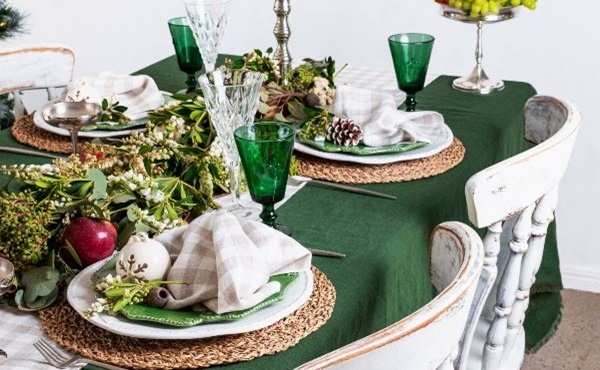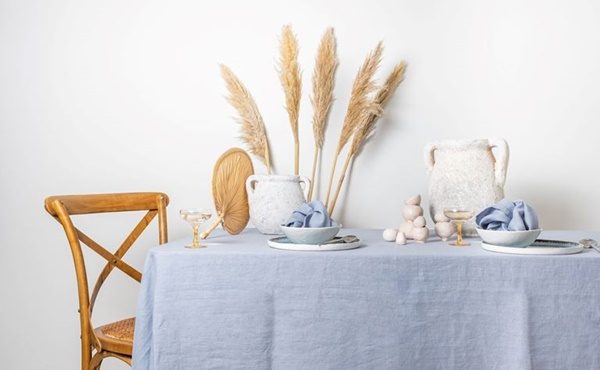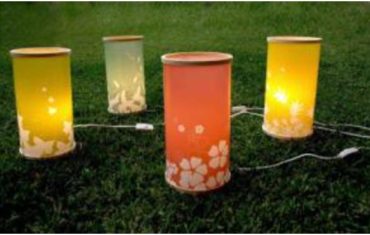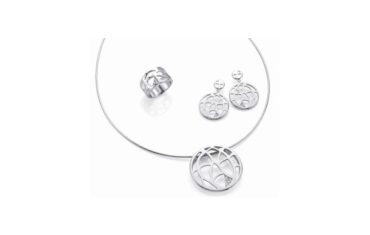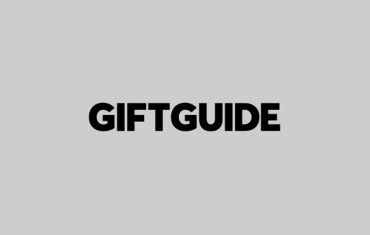As Christmas approaches and restrictions are about to ease in the next few months, there are still plenty of people that will not be able to spend the holiday season with their loved ones due to border closures brought on by the pandemic.
LinenBarn’s founder, Edita Sungaile-Vranich, believes this year a minimalist table setting styled with treasured vintage pieces or family heirlooms, whether they’re ornaments, crystalware, vases or linens, will really shine through.
“There are two reasons for that: growing consciousness about sustainability and the need for simplicity and also, separation from our loved ones due to Covid,” she says.
“There will be so many of us who won’t be able to see loved ones this Christmas, so treasured pieces will take centre stage at the table. It’s all those memories which are tied up in unique pieces brought out for special occasions that will make us feel close even though we won’t physically be close.”
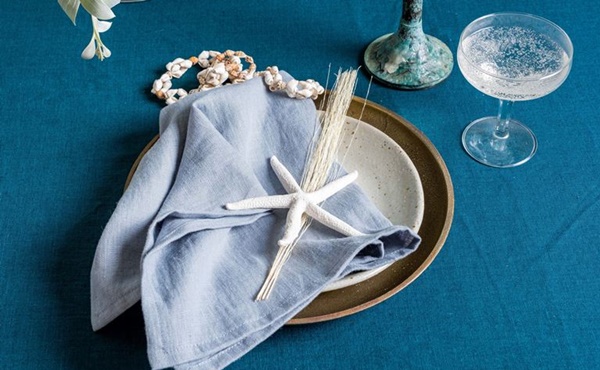
With grey being the colour of 2021, a monochrome Christmas setting which includes the combining of very chic white and grey pieces, along with aromatic soy candles and eco Christmas ornaments, will be right on trend this year as well.
“I also see a pastel Christmas theme being really popular―gentle modern colours paired with vintage décor pieces. I think a lot of people will be putting on their first Christmas, being separated from their families, so they’ll be likely to put their own unique stamp on Christmas styling this year.
“Another trend making its mark is farmhouse style and I think it will be really big this year, with lots of innovative and unique touches to take your traditional Christmas styling and bringing in a bit of modernity with the additions of sleek silverware and servingware, rustic decorations, eucalyptus or gorgeous dried flower wreaths.”
LinenBarn only launched in April this year with the introduction of three tableware collections including Occasional, Coastal and Modern Farmhouse. All its products are OEKO-TEX certified meaning that no harmful chemicals were used in the dyeing process.
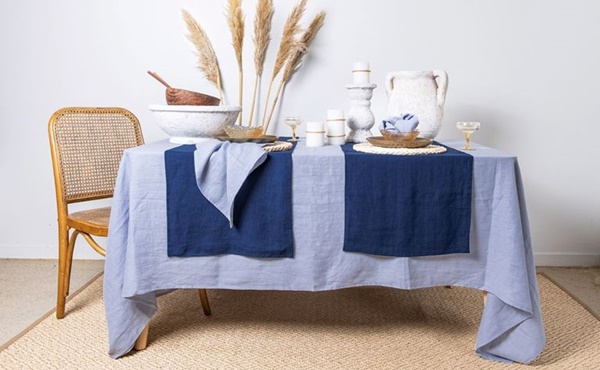
“All our linen cut offs are reused for making linen bags that come with some orders. We also use the edges of the material that are cut from the linen rolls for packaging, ensuring nothing is wasted―we are strongly committed to zero waste.”
Sungaile-Vranich’s says her family has always had a strong environmental ethos, handed down through generations.
“My grandfather refused to use pesticides or herbicides on his fields when it became popular after the Second World War. All his neighbours used them on their crops and veggies and were telling my grandfather that he was ‘old school’ and wasn’t taking a modern approach to managing the land. My grandfather had a great connection with the land and was very intuitive. I remember him saying: ‘If it is killing the bugs, I can’t understand how it can not affect us, who consume it?’
“We take our responsibility as a producer very seriously and offer a beautiful solution to ongoing environmental issues, one of them being the overuse of water in the production of fabric. We strongly believe that water should remain in Australian rivers, unpolluted and the farmers who grow cotton should be supported to shift to producing alternatives or work to find ways to be smarter with the way such a precious resource is used.
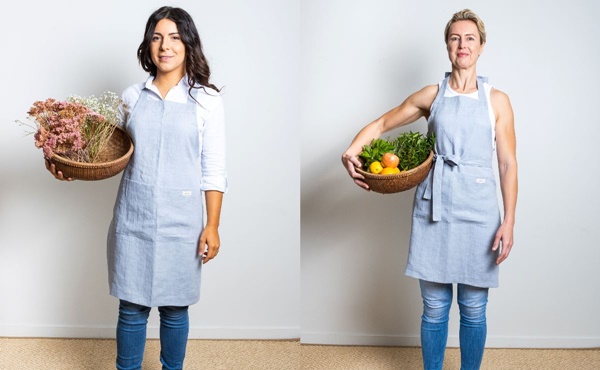
“We must learn to be in balance with nature rather than just look for an extraction from nature. Growing flax fibres, which is later woven into linen, requires up to 20 times less water than growing cotton, and with water resources already critically vulnerable all around the planet, choosing linen as our main product was a no brainer for us,” she says.
LinenBarn has a ‘back to our roots’ ethos and encourages people to be more creative in the way they use its products, which can be anything from using a linen tablecloth as a picnic rug or a throw to put on the shoulders on a chillier night.
“Our grandparents were more creative and resourceful than we are today, the things they owned had multiple uses. I remember my grandma using linen tea towels not only around the kitchen but also turning it into a lunch bag.
“Having grown up in a country that has a very deep connection with linen, which is so woven―no pun intended―into Lithuanian traditions, culture and even into Lithuanian songs, I just saw a beautiful gap in the market, not seeing quality linen available in Australia at an accessible price point.
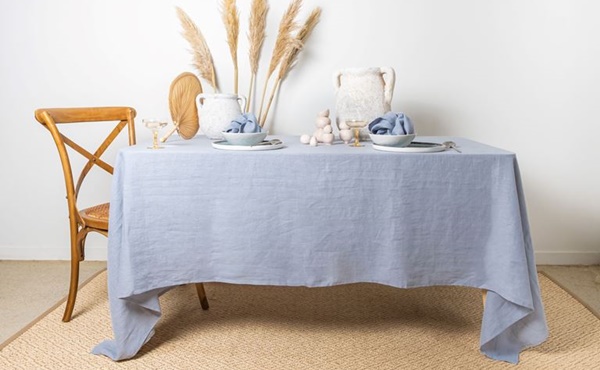
“There is also the ability for me to stay connected to my roots, my country and my family and being able to bring to Australia one of the best products that my country has to offer.”
As LinenBarn is an online store, the only issue it faced during the pandemic were shipping delays, which impacted the launch that initially was planned for the beginning of March 2021. However, Sungaile-Vranich is looking forward to growing her company and has big plans for 2022.
“Without wanting to spoil the surprise, I can tell you that we are working on developing a line of linen bedding, which will have all the beauty, charm and sustainability aspects of our other products. It will be a collection of timeless colours and elegant design, and we plan to launch that in early 2022.
“We also may consider opening a physical store somewhere on the Sunshine Coast, maybe Maleny or Noosa. This is something we are exploring at the moment but for now, we are really focused on our core product offering.”
